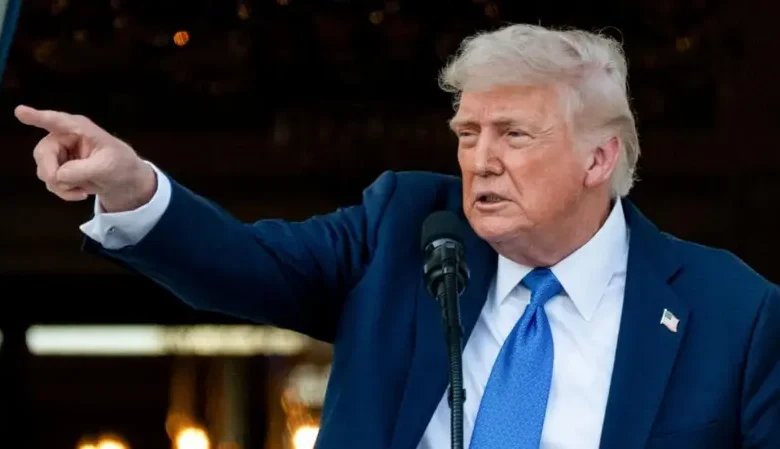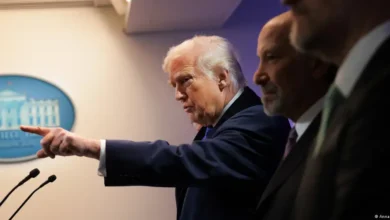Trump slaps ban on people from 12 countries, says ‘US don’t want them’
Though framed as a security measure, this renewed travel ban is reigniting debates over immigration, national identity, and America’s global role — raising complex questions about who is welcome in the United States and under what conditions

The United States is set to implement a sweeping new travel ban starting June 9, 2025, which prohibits or restricts entry for citizens of 19 countries.
Under the order signed by President Donald Trump, full travel bans will be imposed on nationals from 12 countries — Afghanistan, Myanmar, Chad, Congo-Brazzaville, Equatorial Guinea, Eritrea, Haiti, Iran, Libya, Somalia, Sudan, and Yemen.
In addition, citizens from seven other nations — Burundi, Cuba, Laos, Sierra Leone, Togo, Turkmenistan, and Venezuela — will face partial restrictions on entry, according to BBC news.
The White House justifies the bans primarily on national security grounds, citing high visa overstay rates, political instability, lack of cooperation on deportations, and weak screening mechanisms.
Specific accusations include labeling Iran and Cuba as “state sponsors of terrorism,” and describing Somalia as a “terrorist safe haven.” Trump also referenced the recent attack in Boulder, Colorado, allegedly carried out by an Egyptian national, though Egypt is not included in the travel ban list — raising questions about the consistency of the policy.
Critics argue that the bans are punitive and politically motivated. Robyn Barnard of Human Rights First called the order “truly punitive,” saying many of the affected nations are ones from which people flee due to violence, oppression, or human rights abuses.
She believes the ban targets vulnerable populations rather than genuine security threats. This echoes criticisms from Trump’s first term, when a similar ban was widely decried as a “Muslim ban,” though it was upheld by the Supreme Court in 2018 before being rescinded by President Biden in 2021.
The current ban, unlike the previous one, has no set expiration and covers a broader mix of countries, not solely Muslim-majority nations. Trump maintains the new restrictions are based on each country’s ability to safely and reliably vet its citizens. He added that the list could be revised depending on whether countries improve their screening and cooperation with U.S. immigration protocols.
Alongside the travel ban, Trump also announced a six-month suspension of foreign student visas specifically for Harvard University, citing national security concerns and accusing the school of being a recruitment hub for Chinese Communist Party officials.
China denounced the move, saying it politicizes education and harms U.S.-China academic cooperation.
Congressman Clay Higgins, defending the ban, said on BBC Radio that traveling to the U.S. is “a privilege, not a right” and claimed that improperly vetted immigrants have committed acts of violence in the country. He emphasized America’s right to control its borders and insisted the ban is not racially motivated.
However, many see the policy as unjust. Observers note that countries like Myanmar and Haiti are currently experiencing severe humanitarian crises, and many people affected by the ban are refugees or democracy activists who pose no threat.
Myanmar, for instance, has no recorded case of its citizens attacking the U.S., yet its inclusion in the ban could endanger thousands seeking safety. In Haiti’s case, critics argue the U.S. is abandoning a partner nation during its darkest hour, with some describing the ban as “kicking a nation when it’s down.”
Though framed as a security measure, this renewed travel ban is reigniting debates over immigration, national identity, and America’s global role — raising complex questions about who is welcome in the United States and under what conditions.












